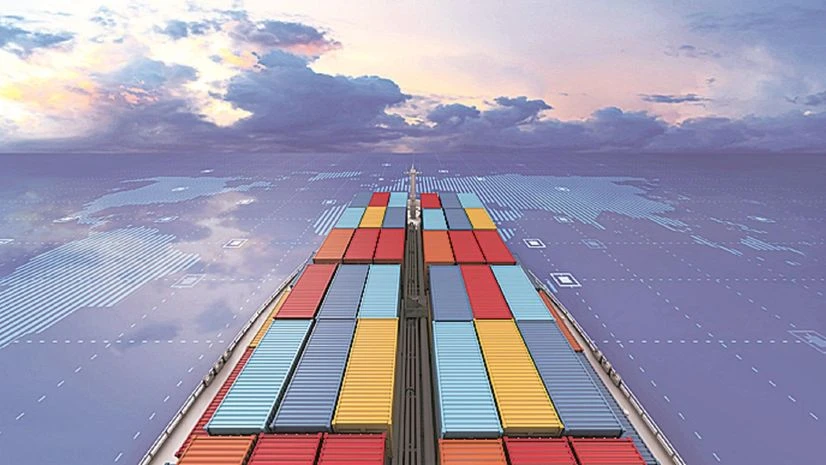)
Navigating Global Commerce: Business Trade in the Red Sea
The Red Sea, with its historical significance and strategic location, has become a pivotal hub for businesses engaging in international trade, offering a dynamic landscape for commerce and growth.
Strategic Position and Maritime Legacy:
The success of Business Trade Red Sea begins with the region’s strategic position. Situated at the crossroads of Europe, Africa, and Asia, the Red Sea has a rich maritime legacy, serving as a vital trade route for centuries. Today, this strategic location makes it a focal point for businesses looking to navigate the global commerce landscape.
Maritime Routes and Trade Networks:
Business Trade in the Red Sea is intricately connected to its maritime routes. These routes, spanning the length of the Red Sea, link businesses to major trade networks. Ports along the Red Sea play a crucial role in facilitating the movement of goods, forming an essential part of the global supply chain and enabling businesses to seamlessly connect with international markets.
Diversity in Trade Opportunities:
The Red Sea offers a diverse range of trade opportunities, contributing to the vibrancy of Business Trade Red Sea. From traditional sectors like maritime and logistics to emerging industries such as technology, tourism, and renewable energy, businesses find a plethora of avenues for exploration and investment, adding resilience to their trade portfolios.
Explore Business Trade Red Sea at teevio.net:
In the midst of this dynamic trade landscape, Business Trade Red Sea serves as a central hub, providing valuable insights and connections. Businesses can leverage this platform to navigate the diverse trade opportunities offered by the Red Sea region.
Infrastructure Development and Logistics Excellence:
Business Trade Red Sea is supported by ongoing infrastructure development. Ports and logistics infrastructure are continually modernized to enhance efficiency and accommodate the growing demands of international trade. This commitment to logistics excellence ensures that businesses can rely on streamlined operations for their import and export activities.
Technological Integration for Trade Efficiency:
In the era of digital commerce, Business Trade Red Sea is marked by technological integration. From smart logistics solutions to digital communication platforms, businesses operating in the region leverage technology to enhance trade efficiency. This integration not only improves operational processes but also positions the Red Sea as a technologically advanced trade hub.
Sustainability and Responsible Trade:
Business Trade in the Red Sea places a strong emphasis on sustainability and responsible trade practices. Businesses are increasingly adopting eco-friendly initiatives and adhering to sustainable supply chain practices. This commitment not only aligns with global sustainability goals but also appeals to environmentally conscious consumers, contributing to a positive trade image.
Government Support and Trade Facilitation:
The success of Business Trade Red Sea is bolstered by active government support and trade facilitation measures. Pro-business policies, investment incentives, and trade-friendly regulations create an environment conducive to international commerce. Governments in the region actively work to streamline trade processes, reducing barriers for businesses engaged in cross-border activities.
Cultural Exchanges and Business Diplomacy:
Beyond the transactions, Business Trade Red Sea fosters cultural exchanges and business diplomacy. The region’s historical significance and diverse cultures contribute to a unique business environment. Networking events, trade fairs, and collaborative initiatives become avenues for businesses to build relationships and establish a strong presence in the global trade community.
Tourism as a Trade Catalyst:
The Red Sea’s appeal extends beyond trade, with tourism playing a significant role in boosting commerce. The region’s natural beauty, historical sites, and cultural richness attract tourists, creating additional avenues for businesses engaged in hospitality, travel, and related industries to participate in the dynamic trade ecosystem.
Strategic Partnerships and Global Alliances:
Business Trade Red Sea encourages the formation of strategic partnerships and global alliances. Businesses in the region actively seek collaborations to expand their reach and influence in the international trade arena. These partnerships contribute to knowledge exchange, innovation, and shared growth within the global business community.
Conclusion:
In conclusion, Business Trade Red Sea is a dynamic journey through the currents of global commerce. As businesses navigate the strategic waters of the Red Sea, Business Trade Red Sea serves as a compass, providing the tools and connections necessary for success in this vibrant trade landscape. With its strategic location, diverse trade opportunities, and commitment to sustainability, the Red Sea continues to be a beacon for businesses seeking to thrive in the ever-evolving world of international trade.
